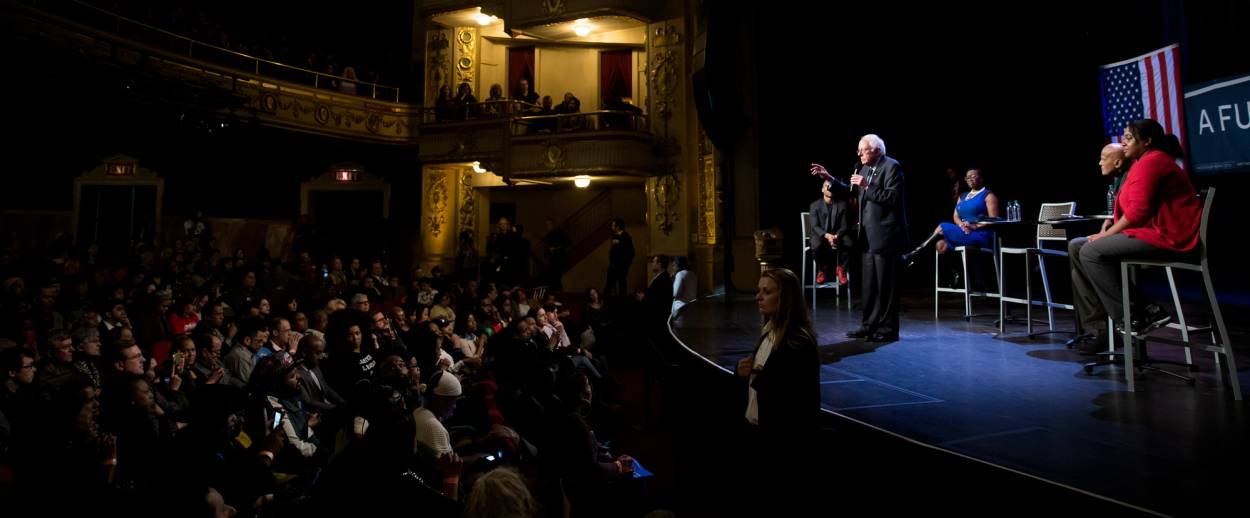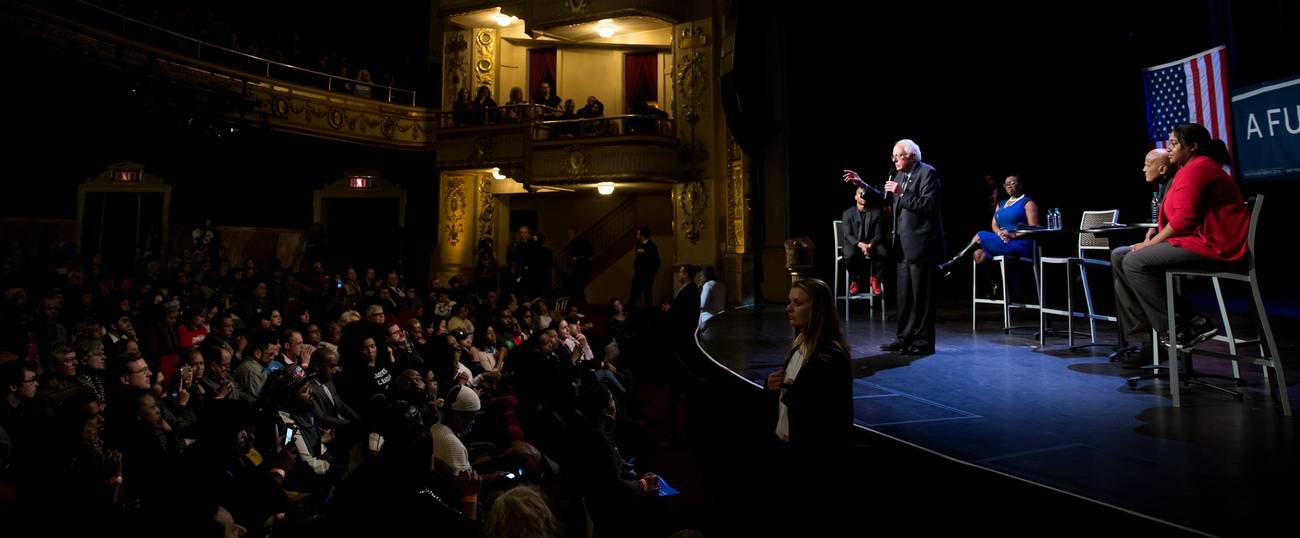On Saturday, Democratic presidential contender Bernie Sanders held an event at the Apollo Theater in New York, in an effort to reach out to his hometown’s minority communities before next week’s presidential primary. At the close, the organizers announced that there was no more time for questions, only to make an exception and allow one final query. Afterward, they probably wished they hadn’t.
“As you know,” opened the questioner, “the Zionist Jews–and I don’t mean to offend anybody–they run the Federal Reserve, they run Wall Street, they run every campaign.” As this unfolded, Sanders began wagging his finger in dissent, and interjected to deem “Zionist Jews” a “bad phrase.” His interlocutor, pressed to articulate a question, concluded by saying, “What is your affiliation to your Jewish community? That’s all I’m asking.”
“No, no, no, that’s not what you’re asking,” Sanders quickly replied, in a nod to the question’s underlying prejudice. “I am proud to be Jewish,” he declared, to cheers from the audience. But then Sanders did something odd. Rather than using the question as a teaching moment to address and rebuke its anti-Semitic underpinnings, Sanders instead immediately pivoted to his stump speech on the Israeli-Palestinian conflict. “Talking about Zionism and Israel,” he said, “I am a strong defender of Israel, but I also believe that we have got to pay attention to the needs of the Palestinian people.” He never challenged the actual contents of the question, let alone labeled it anti-Semitic.
Watch the entire exchange below:
Needless to say, Sanders has mustered far more outrage for Wall Street, systemic racism, and Islamophobia, than he did when confronted with anti-Jewish prejudice. His reserved response to the anti-Semitic questioner stands in stark contrast to his powerful rebuke of anti-Islamic prejudice back in October, when he movingly embraced a Muslim student on stage.
Now, there are good reasons for the contrast. Saturday’s exchange came at the very close of the event, after Sanders had been fielding questions for over an hour. He was doubtless tired and not expecting to be confronted with such naked prejudice, let alone issue a detailed rebuttal of it. Like any politician, he naturally pivoted to his talking points when faced with the unexpected. Moreover, like many Jews of his generation, Sanders has learned to be reticent about being too assertive about his Jewishness, lest it provoke even more bigotry–something that has happened repeatedly on the rare occasions that the Vermont senator has opened up about his Judaism.
All that said, as understandable as Sanders’ response may have been in the moment, it still represents a missed opportunity. Sanders had the chance to educate a young progressive audience about the perils of anti-Jewish prejudice, and he didn’t quite rise to the occasion as he has when coming to the defense of other minorities, or when railing against millionaires and billionaires.
There is still plenty of presidential campaign to go, and Sanders may well have other opportunities to address this issue. So here, for the record, is what he should have said, and what he should say in the future:
What you just heard was outlandish and unacceptable, but I am glad that you did, because it gives me an opportunity to utterly repudiate it. The lie that a secret Jewish conspiracy controls this country or others has been used to justify the persecution and murder of Jewish people for centuries, including my own family in the Holocaust. It is an ancient anti-Semitic canard whose bigotry is not lessened by prefacing it with the word “Zionist.”
I completely reject that question and the prejudice behind it, just as I have stood on stages like this one and rejected the systemic racism in our society and the rising tide of Islamophobia in this election. There are those who traffic in hateful stereotypes and seek to pit us against each other–black and white, gay and straight, Jew and non-Jew–and I will always stand against them, and for all of us.

